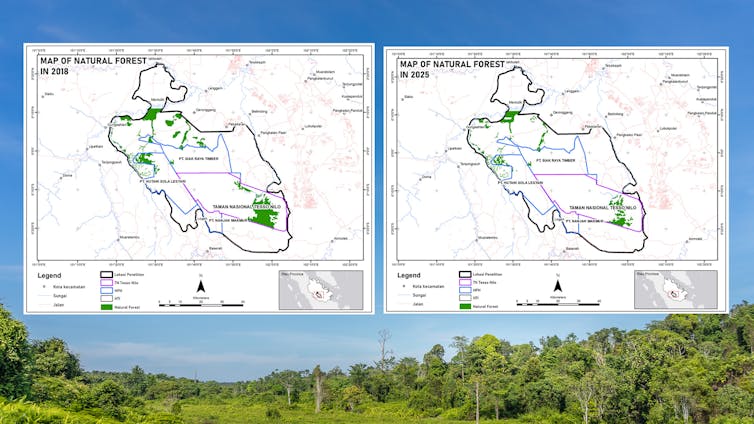Ministry of Higher Education, Science, Research, and Innovation Encourages Collaboration Between the Thai Public and Private Sectors to Establish Robust Network That Instills Confidence for Investing in Startups
- Written by National Innovation Agency
Ms. Supamas Isarabhakdi, Minister of Higher Education, Science, Research and Innovation, emphasized the ministry's commitment to propelling the nation's economy and society through an innovation-driven approach, with a particular focus on startups and young entrepreneurs. The ministry actively plays a supportive role in integrating new generations into the Thai startup ecosystem and facilitating the expansion of business operations for startups, fostering their growth. This is achieved through the Alpha Program within the Startup Thailand League, in collaboration with over 50 educational institutes across Thailand. The initiative has resulted in the registration of more than 61 companies from participating student teams, representing an economic value exceeding 100,000,000 baht.
She also said that, presently, numerous universities have established funds dedicated to investing in student startup ventures. Examples include CU Enterprise at Chulalongkorn University, M Venturer at Mahidol University, and Angkaew Holding at Chiang Mai University. These initiatives actively encourage the incorporation of innovation and cutting-edge technology in business operations, with a steadfast commitment to ongoing expansion and development.
Therefore, organizing today's "NIA x depa VC NIGHT" event serves as a commendable starting point, with NIA and depa as the primary hosts, along with partner agencies such as the Thai Venture Capital Association (TVCA) and Beacon Venture Capital. The event aims to fortify the investor network and stimulate investment in Thai startups. This initiative underscores the collaboration between government agencies and the private sector, demonstrating their shared commitment to propelling the country's economic and social systems forward through the capabilities of innovation and technology entrepreneurs, commonly referred to as startups. Recognizing that a crucial element in building a robust and globally competitive Thai startup ecosystem is the alignment of goals and concerted efforts across all relevant sectors. It is vital for stakeholders to consistently communicate, support one another, and work together seamlessly. The guidelines for public-private cooperation in future market development, presented today, constitute important and intriguing proposals that the Ministry is committed to advancing and translating into tangible actions in the future.
Dr. Krithpaka Boonfueng, the Executive Director of the National Innovation Agency (Public Organization) or NIA, highlighted that NIA aspires to serve as the guiding force and facilitator in innovative finance. The goal is to foster the development and support of innovative businesses within specific industries, generating economic and social impacts, promoting environmental sustainability, and enhancing the overall quality of life for citizens. This is to be achieved through the implementation of unconventional financial support mechanisms and by establishing connections with partners in innovative finance, investment, and the innovation market, ultimately driving the growth of innovative business entrepreneurs.
This year, there has been a comprehensive overhaul of the mechanisms aimed at promoting and supporting SMEs and startups across various dimensions. A notable enhancement pertains to financial support for market expansion and investment opportunities. This includes the introduction of a new subsidy funding mechanism known as "Corporate Co-funding," developed through collaboration with the Technology and Innovation-based Enterprise Development Fund (TED Fund). Additionally, there is an emphasis on activities like Invest Startup Thailand, strategically designed to stimulate increased investment in startups within the country. For instance, there is a dedicated effort to cultivate knowledge about investing in startup enterprises, commonly referred to as the "Angel Investor" initiative, the development of investor networks, encompassing both Venture Capital (VC) and Corporate Venture Capital (CVC), as well as business matching activities and the provision of a platform for startups to present their business plans to potential investors. NIA envisions these strategic operations as crucial tools that will propel startups towards sustainable growth in the global market.
Assist. Prof. Dr. Nuttapon Nimmanphatcharin, President and CEO of the Digital Economy Promotion Agency, has outlined depa's commitment to fostering industrial development and digital innovation. The agency is dedicated to promoting digital startups through a variety of mechanisms. The strategic plan includes enhancing the competitiveness of digital startups, with a particular focus on creating innovative funding promotion mechanisms, especially co-investment initiatives. Additionally, depa aims to facilitate the establishment of a fund dedicated to elevating digital startups to a global level.
Additionally, there is a collaborative effort with relevant agencies to attract highly skilled individuals to work in Thailand, facilitated by the Global Digital Talent Visa mechanism. Additionally, a concerted initiative with the Board of Investment (BOI) has been established to create a market for digital startups. This includes implementing measures to grant a complete exemption from corporate income tax, up to 100% of the investment, with no set limit on the amount when purchasing products or services from digital startups registered in the digital service account. These strategic measures are designed to foster the growth of digital startups, positioning Thailand as a key hub for the development of the digital startup sector and investment within the region.
Mr. Sarun Sutuntivorakoon, President of the Thai Venture Capital Association (TVCA), commented on the current landscape of investment in Thailand. Presently, there is a limited number of unicorns in Thailand, leading to a shortage of business experts and a lack of supporting infrastructure. This contributes to startups lack strong reputation and limited VC participants. This situation underscores the issue of having a low level of emerging unicorns. On the flip side, the success cycle in foreign countries involves a higher number of successful startups. This success attracts experts who collaborate to build the appropriate infrastructure. In turn, this instills confidence in investors, making them eager to invest, thus facilitating the continual emergence of new startups.
Therefore, collaboration with government entities such as NIA and depa is not only necessary but also pivotal in overcoming challenges and fostering success. This collaboration hinges on two critical pillars: Firstly, the emphasis on equity through government funding support mechanisms, as witnessed in the success stories of nations like Israel and Singapore which have propelled their countries from obscurity to prosperity, becoming centers for technology and innovation. Secondly, a fundamental focus on education is essential, involving the preparation of children for the future by instilling business knowledge and experience. This approach ensures that graduates are equipped to establish their own startups immediately.
Hashtag: #NationalInnovationAgency #NIA
The issuer is solely responsible for the content of this announcement.
References
- ^ Media OutReach (www.media-outreach.com)
Authors: National Innovation Agency
Read more https://www.media-outreach.com/news/thailand/2023/11/30/264203/





